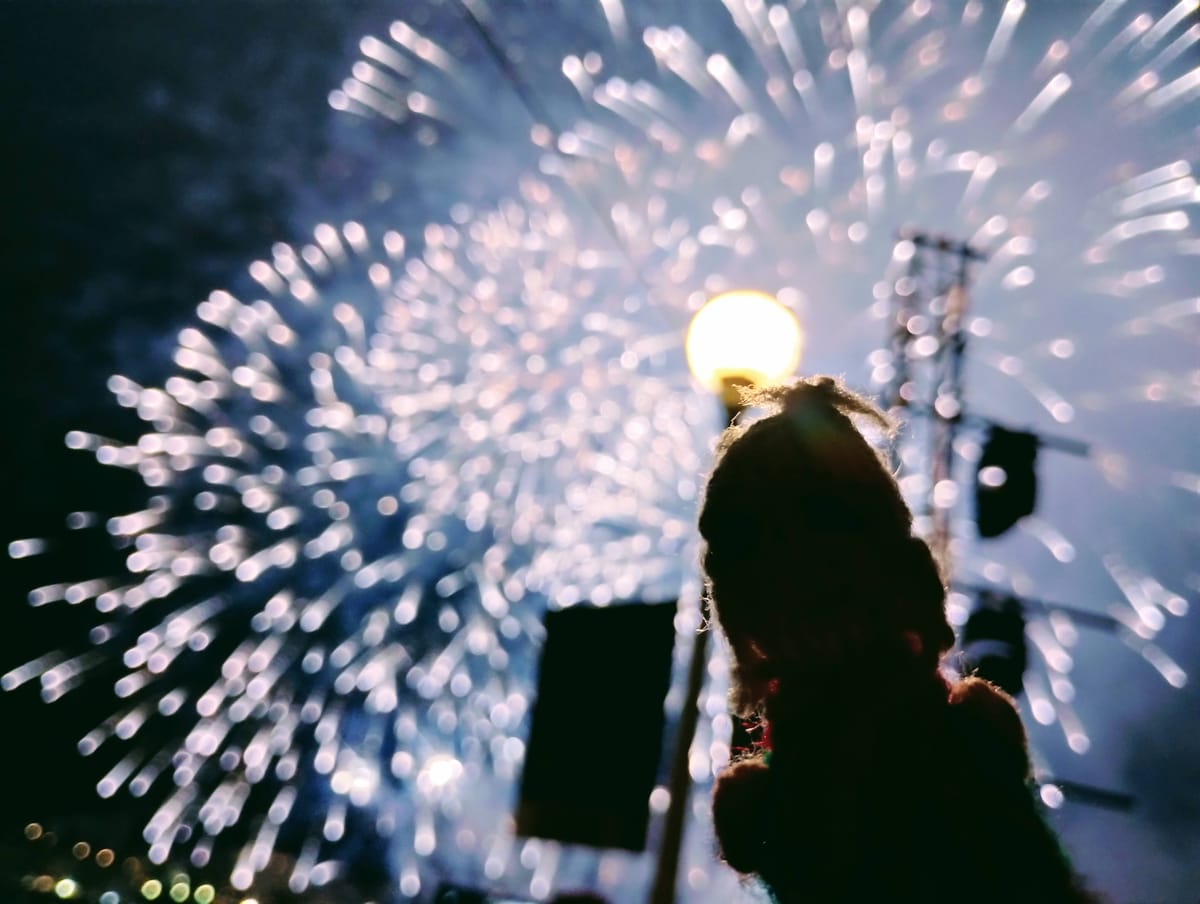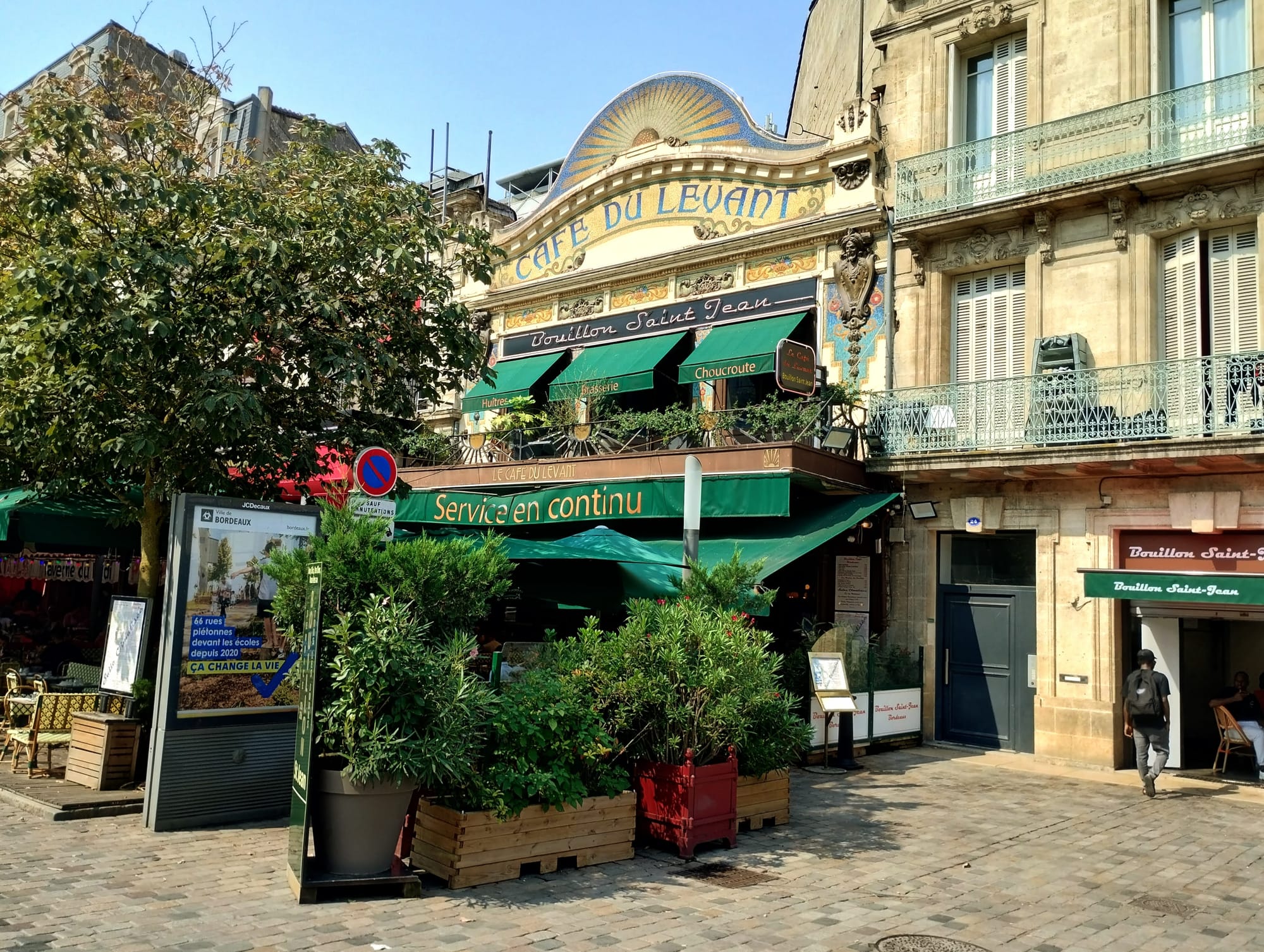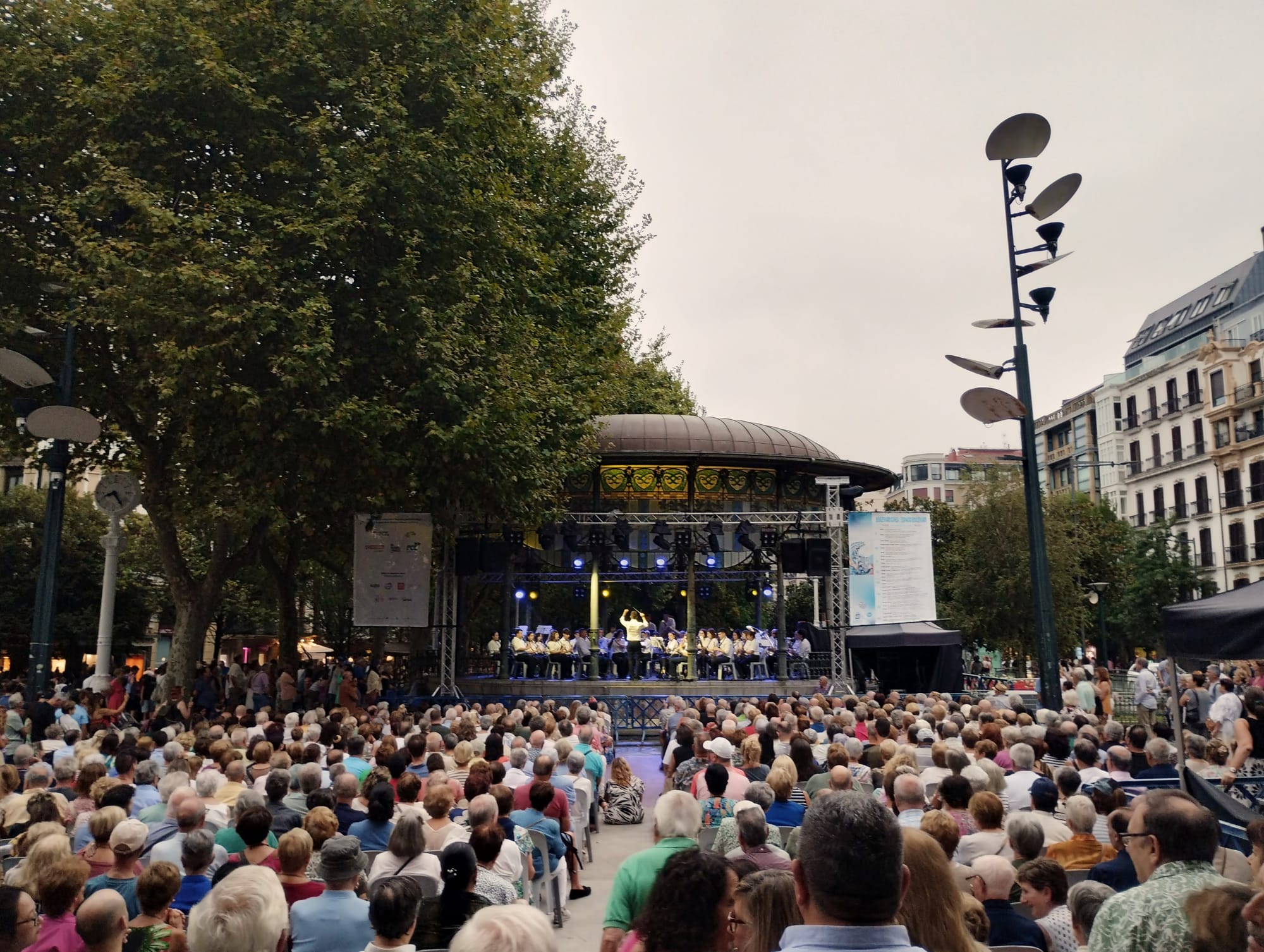Iberian Commute, day one: Donostia
Pintxos y cerveza, por favor

In a week in which temperatures exceeded 40°C where I live in France, I agreed – in a moment of madness – to a week of teaching work in the south of Spain. Oh no! An excuse to take the train from Périgueux to Hendaye, stop for pintxos in the Basque Country, then hoon across Spain in a day?
Oh no!
Of course, as far as I'm concerned by far the easiest way of getting to actual Spain from the southwest of France is on the train. Although the journey is perhaps not easy to describe as being a hop, skip, and a jump, in my mind it is less faff than the alternative; to fly would have meant going to Paris (wrong direction), Bordeaux (unhelpful time), or Marseille (silly time). It was agreed I'd get the train from Donostia and use an Interrail one-country pass to do the trip for more or less the same price as point-to-point tickets.
The first leg of my journey, from Périgueux to Donostia, was mostly uneventful. I had time for a quick coffee and a croissant in the bar opposite the station in Périgueux and when I got to the train, it was quite busy but not overly so and, crucially, the air-conditioning was working well and there were no squealing children. When I left the house at 8 a.m. for the walk into town to get the bus, the temperature was already in the mid-twenties and by the time I reached Bordeaux the weather was much, much hotter.
My phone suggested that it was 40°C during my two-hour wait between trains, where I sought refuge in the Bouillon Saint-Jean opposite the station.

As with the Bouillons Chartier in Paris, the core idea of the Bouillon in Bordeaux remains good-quality food at reasonable prices served in a fun environment. When invented in the 19th century, the concept was to serve good quality food quickly, at an affordable price, on a large scale, a successful formula that was repeated across multiple sites; the Bouillons were the original fast-food chains.
This one is housed in the Café du Levant, one of Bordeaux's historic brasseries with an art deco façade and cavernous dining room which has been there since 1896. I've often looked at it many times from afar and wondered what it's like inside and it's much like its Parisian namesakes, although smaller, slightly less clattery, and a little less manic.
The staff were friendly people and coped well with travellers and their luggage, puppets, and all. I was concerned that the Penne Rigate Crémeux, Champignons et Tartufata à la Truffe d’été (marked as the vegetarian option and costing only ten euros) would be a little excessive, given the heat. Instead, I had eggs mayonnaise and the tomato, burrata, and pesto salad, with a bowl of frites to make up a main course. This I washed down with a kir and a carafe of water.
To follow, I had the Colonel sorbet citron et vodka – essentially a chilled glass of vodka with some lemon sorbet languishing at the bottom – which eased me through the next few hours to Hendaye. With a coffee to try and mitigate the vodka, the total came to a very reasonable 17€ and it was all at my table in no time at all. Next to me, people had the confit de canard – probably the meat I miss most – and it looked utterly gorgeous but a slightly odd choice for tropical weather.
On the train, the air conditioning did a sterling job and with the slightly overcast-looking weather outside made it feel as if once again I'd made the wrong decision by not bringing a coat. The journey passed peacefully, helped by the Colonel, but it was only in Hendaye that I was brought back to the reality of weather when the doors opened and I stepped onto the platform. Cloudy, humid, and hot. Not my favourites, even less so combined.
On the Euskotren, someone had been sick on a seat, and some unnaturally-tanned French people with unsettlingly white teeth were apparently having some kind of shouting competition.

After checking into my hostel – a new one this time, right next to the station, something of a "needs must" decision – I set out looking for pintxos and Mahou. To my surprise, Donostia was alive with the Semana Grande de San Sebastián, one of the city's main festivals which takes place the week around the Feast of the Assumption of the Virgin. Little did I know that as well as brass bands, big heads on puppets, and concerts in the bandstands dotted around the city, this would also include the final show of the 60th Concurso Internacional de Fuegos Artificiales which has been running every night for the last week.
But first, there was walking and grazing to be done and at the Bar Ciobaga, I fell in love with this week's new favourite snacky thing: patatas al ajillo. These are potatoes which have been slowly cooked in oil and garlic until they are indecently silky smooth, garnished with parsley and salt. They come served in a dinky little dish and seasoned by the punter with paprika and washed down with a Mahou, or tipple of choice. They are consumed with a cocktail stick and there is fresh bread for mopping up all the garlicky oily goodness that's left over. I could live on them, if such a thing were possible, but I had to be at the seafront for 10.45 so reluctantly parted ways with the young man in a tight-fitting Marinière who had been tirelessly (and very loudly) taking and relaying orders for the whole time I was there.
At about 10:15 pm, I headed towards the beach where everyone in Donostia and his dog had had the same idea and was waiting for the fireworks to begin. The beach was full, and in the build up to the off, policemen made good use of their whistles and glow-sticks to tootle at and herd on those who'd mistaken a security perimeter for a nice big expanse of empty beach. These poor stragglers then had to navigate the rest of the beach, already packed with people who'd been there for hours. The same was happening at street level, and once everyone was at a safe distance to the satisfaction of the rozzeres, the fireworks started.
Those who had got to the sand early enough also had the pleasure of being near the stage where live artists performed sons to accompany the lumières, and for those of us who hadn't found such a vantage spot there were large screens we could look at if the fireworks weren't interesting enough. The flashbangs, accompanying laser light, and occasional unexpected 90s dancefloor-banger kicked off at 22:45, and ran for at least twenty minutes before applause broke out and the task of shuffling home began. If I'd been a Spanish constable on a beach with a hi-vis vest and a whistle, I'd have been having the time of my life.
We dispersed slowly but surely and to round off my evening, I found a bar where I had a refreshing glass of freshly-prepared sangria and was propositioned by someone whose demeanour suggested one shandy too many, before retiring to bed.